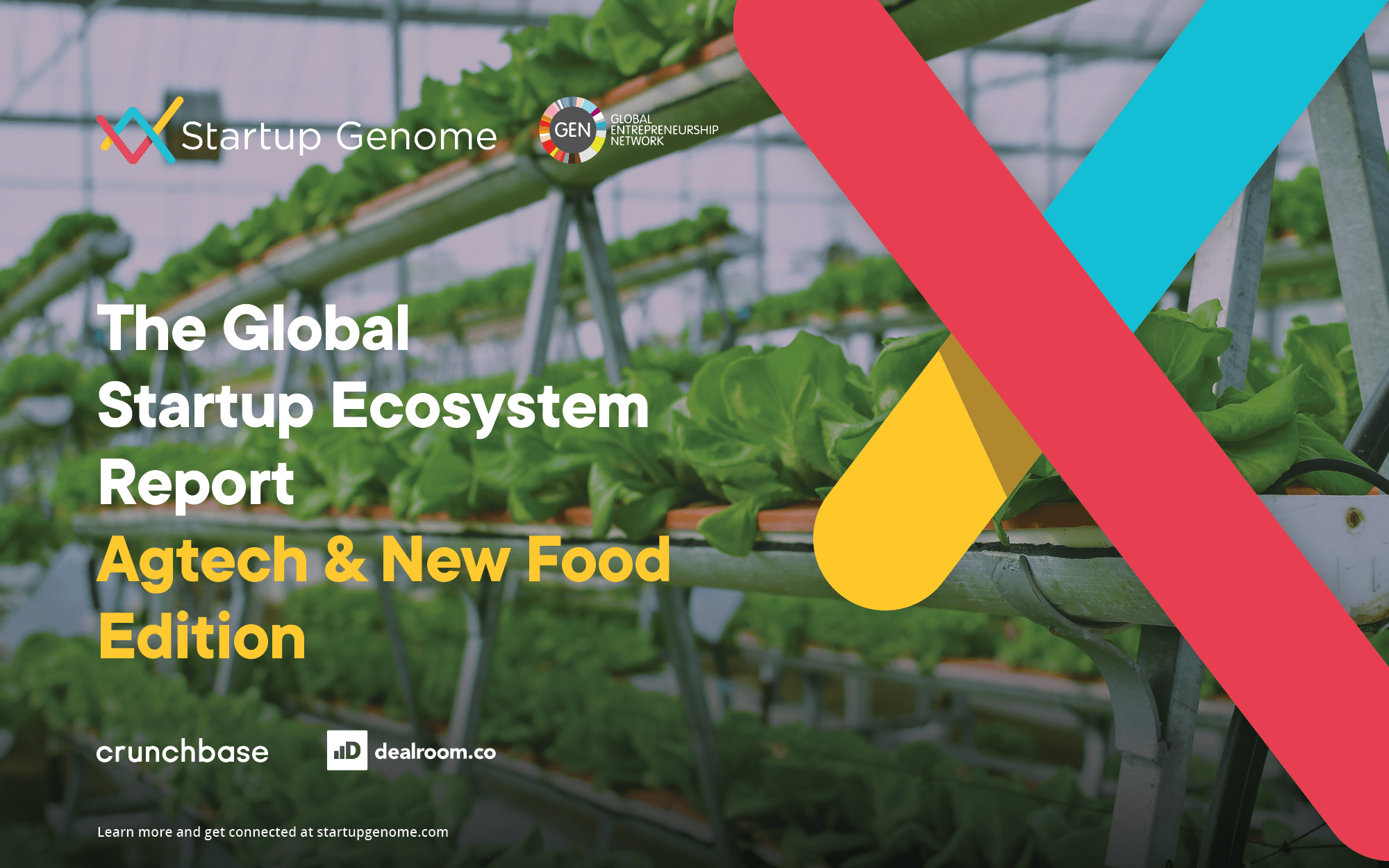- About Startup Genome
- Our Services
- About Our Global Partners
- Today’s Food System Can’t Get Us to Tomorrow — Alternative Protein Innovation and Collaboration Can
- A Fast-Changing Industry Means Greater Opportunity for Women in Agtech
- Global Startup Sub-Sector Analysis
- Global Agtech & New Food Ranking: Top 25 + 10 Runners-Up
- Global Agtech & New Food Trends
- Agtech & New Food Ecosystem Players
- Top Five Ecosystems by Region & Ecosystems to Watch
- Ecosystem Pages
- Methodology & References
- Acknowledgments
The Global Startup Ecosystem Report Agtech & New Food Edition

A rapidly growing global population, global disparity in access to food, soil degradation, and many other factors have driven innovation in agriculture and food technology for decades, but the COVID-19 pandemic, spiraling fertilizer costs, supply chain disruption, and recent geopolitical events have brought new urgency and mainstream attention to the issue of food security. Combined with increasing awareness of the effects of climate change, we are more aware than ever of the fragility of our food supply chains and need for change in patterns of consumption.
But where there is need, there is opportunity. Entrepreneurs across the globe are stepping up to meet the challenge of feeding the world and improving the sustainability of our agricultural systems. Whether through editing crop genes, rethinking logistics, or producing plant-based foods, startups are drivers of real change in the sector. More broadly, technology is allowing knowledge to be shared across ecosystems and throughout sectors to further accelerate a move towards a more responsible and resilient future.
For the purposes of this report, Agtech & New Food includes services and technologies with a focus on improving agricultural efficiency and sustainability, including field sensors, drones, farm-management software, robotics, vertical farming, and more. Apps and services that provide access to food, including direct-to-consumer food delivery platforms, meal kit and grocery delivery services, and ghost kitchens are also included, as are products and services that innovate food processing and improve food ingredients. The definition also includes next- generation food and drinks, including cultivated meat, plant-based meat and milks, insect-based products, fermented foods, and meal replacements. Waste management and packaging of food products are also included. Please see the methodology page for more information on the criteria used.
Key Findings
- The top five Agtech & New Food ecosystems are Silicon Valley, New York City, London, Tel Aviv-Jerusalem, and Denver-Boulder. The Colorado ecosystem vastly outperforms its overall ranking in the GSER 2021 (#27) due to its concentration of specialized Agtech talent and startups.
- North America and Asia dominate the top 25 Agtech & New Food ranking, with 48% and 20% respectively. Europe has four ecosystems in the top 25, Oceania has two, and MENA one.
- The amount of Series B+ deals in Agtech & New Food worldwide rose from $3.8 million in 2017 to $11.5 million in 2021. North America accounted for 70% of Series B+ deals in 2021.
- Due to shifts in consumer behavior and rapid innovation in the sub-sector (including pandemic-driven changes), the share of food and grocery delivery deals has climbed steadily in recent years. In 2021, delivery accounted for 11% of the $1.6 billion invested in Agtech & New Food, up from just 2% of total dollar amount invested in the sub-sector in 2017 and 6% in 2020.
- Non-cultivated alternatives to meat overtook cultivated meat in terms of amount invested at the seed stage for the first time in 2021, suggesting increasing early-stage innovation in the field.